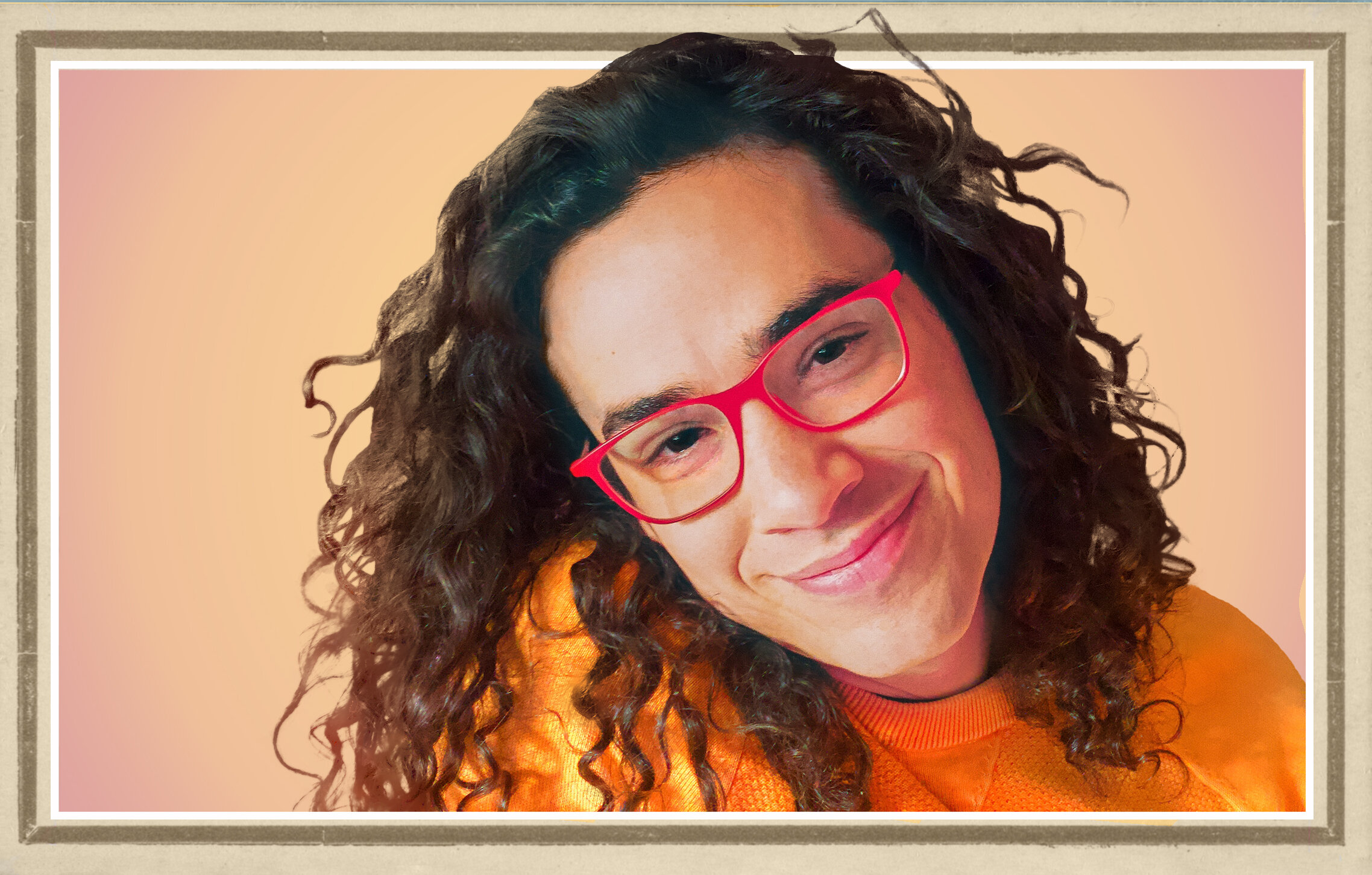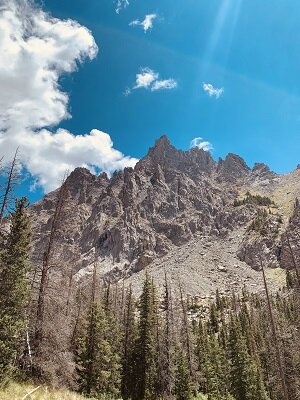Can brain exercises stave off dementia? On Monday, March 22, at 4:00 PM the EST/Sloan First Light Festival presents the first public reading (free on Zoom) of THE RESERVOIR, Jake Brasch’s new play about a young writer who, struggling with alcoholism and memory loss, finds unexpected bonds with his quirky grandparents. The playwright has lots more to tell.
(Interview by Rich Kelley)
How did THE RESERVOIR come to be?
This play has been trying to fight its way out of me for years. When I got the commission, there was no turning back.
I set out to explore Alzheimer’s Disease and alcoholism, diseases that have plagued my family for many moons. Along the way, I discovered I was writing a love letter to my grandparents.
You describe Josh, your main character, as 22 years old in 2014-2015. “A queer, neurotic, lost soul. Dropout. Alcoholic. Wannabe writer. A white Jew with Ashkenazic, Sephardic, and Nebraskan roots.” Dare I ask how much of your play is autobiographical? Or would it be better to ask how much is not?
You got me!
Indeed, this is a very personal piece. Too personal? Maybe! There were definitely “WHY THE HELL AM I DOING THIS?!” moments. But for the most part, I found strength in writing into this painful chapter of my life. I’m a fundamentally different person than I was seven years ago and it felt empowering to remember that.
That being said, the play is not strictly autobiographical. The constraints of the commission and the needs of the piece steered me away from my experience. I also took some creative license to protect my heart and my family. It feels important to be very clear about this: Josh’s story is not my story. A brilliant friend of mine recently wrote, “Most of us need a degree of artifice to say what we really think.” Paradoxically, I found that untethering Josh’s story from my own gave me permission to tell the truth.
Much of the science in this play has to do with the concept of Cognitive Reserve and how it might be helpful in preventing or delaying the onset of Alzheimer’s. What kind of research did you do in writing this play?
I went on a deep dive into medical journal land. The more I read, the more I discovered how little we know about Alzheimer’s, specifically about how we might stave off its symptoms. There are a lot of misconceptions out there. People want to believe that all they have to do is play tennis, solve crossword puzzles, and memorize a list of our nation’s Vice Presidents, and all will be well. Yes, there are certain lifestyle factors that may delay the onset of Alzheimer’s, but there is no formula, no proven regimen, no sure way to protect yourself from the disease.
Bleak? Oh yeah. But also, ultimately, freeing. We simply cannot know what lies ahead. Josh’s revelation in the play mirrors what I discovered in my research: the best way to protect oneself against the onset of Alzheimer’s is to lead a present, full, joyous, active, inquisitive, open, and loving life.
Have your grandparents had the chance to read your play? How did they react?
Oh, how I wish I could share this with them.
Both of my maternal grandparents passed away a few years ago after battles with Alzheimer’s. My paternal grandfather died this year of complications from COVID-19.
My paternal grandmother is in a memory care facility. She’s mostly nonverbal at this point and doesn’t seem to recognize me. I miss her more than I can say. If she were still herself, I’m guessing she would request a paper copy of the play to litter with brilliant, scathing, and hilarious notes in red colored pencil. I’d like to think she’d be both horrified and proud.
What do you want your audience to understand about the nature of alcoholism and the current treatment options for coping with it?
Addiction is brutal. Being inside of the disease of alcoholism was the scariest experience of my life. I wanted so badly to get out from under it, but the harder I tried to escape, the worse it got. At some point, I had to accept defeat and get help. For anyone going through it, don’t try to go it alone. I’m here. We’re here. Recovery is the foundation my life has been built upon and I wouldn’t have it any other way. As impossible as it may seem, there’s a lighter life on the other side.
Jewish music and themes run through many of your plays. What has being a Jew meant to you?
Being a Jew has meant a lot to me. Much to unpack here!
My father, a fervent atheist, insisted I attend way too much religious school, which we can attribute to good old-fashioned Jewish guilt. I have at least an hour and a half of Hebrew chanting memorized, but I can’t say I know what any of it means. I know what we do, but I don’t know why! It’s just what we do! And I’ve come to love it! Plus great food and ancestral trauma! I think I’ll probably do the same thing to my poor children!
In all seriousness, as I’ve become a spiritual person over the last few years, I’ve done a lot of thinking and writing about my Jewish roots. My faith today feels decidedly Jewish: I’m more concerned with what I do than what I believe.
You set your play in Colorado? Why Colorado?
Because Colorado is awesome, bro! Party! Powder! Snowboarding! Sick!!!
I’m a proud Denverite, born and raised. The year I got sober, the mountains were there for me. Every time I looked west, I felt so delightfully small. Mother Nature gave me breathing room and I’m forever grateful to her. I hope that’s in the play.
Have you written any other science-related plays?
This is my first full-length with a science bent. I’ve written two other shorts for the EST/Sloan Project. One was about our national feral pig problem. The other just so happens to be debuting in the next couple of weeks on the brand new Youngblood Podcast (shameless plug)! It’s called Endogamy and it’s about Ashkenazi Judaism and genetics.
What’s next for Jake Brasch?
Dinner! I’m making a chicken tagine with an olive and rosemary sourdough boule and a shaved fennel salad. After that, bedtime. And after that, here’s hoping for a lifetime of climbing mountains, telling stories, and basking in the sunlight of the spirit.
The 2021 EST/Sloan First Light Festival runs from February 25 through March 29 and features readings of nine new plays. Readings open to the public are free and available on Zoom. The festival is made possible through the alliance between The Ensemble Studio Theatre and The Alfred P. Sloan Foundation, now in its twenty-third year.






